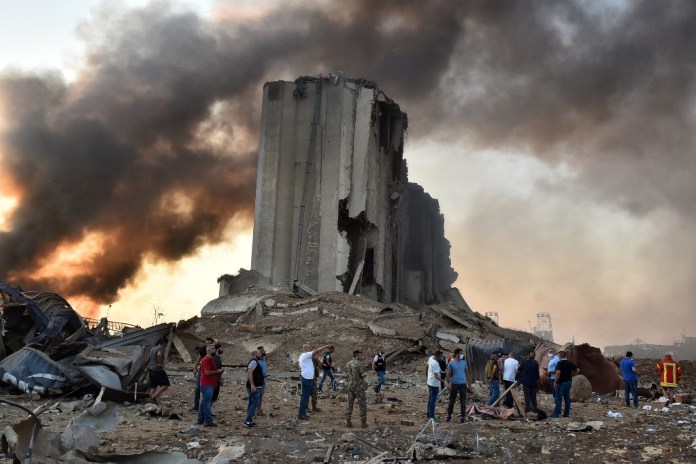
RIVLIN: WE SHARE THE PAIN OF THE LEBANESE PEOPLE
PM, defense and foreign ministers reach out to hostile neighbor through UN and international mediators after massive blast at port; president, opposition leader send condolences.
Israel on Tuesday night offered humanitarian aid to Lebanon, after explosions at a Beirut port killed dozens and injured thousands, in a rare show of support for the enemy country. As of Wednesday afternoon, there had been no official Lebanese response to the offer.
“Israel approached Lebanon through international defense and diplomatic channels to offer the Lebanese government medical humanitarian aid,” Defense Minister Benny Gantz and Foreign Minister Gabi Ashkenazi said in a joint statement.
Prime Minister Benjamin Netanyahu said he instructed his National Security Adviser, Meir Ben Shabbat, to discuss with UN envoy Nickolay Mladenov how Israel can assist Lebanon.
Mladenov confirmed Israel’s offer to work through the UN in a tweet, saying that “The region and the world must come together to help the people of Lebanon through this time of anguish.”
President Reuven Rivlin, in tweets in English, Arabic and Hebrew, added: “We share the pain of the Lebanese people and sincerely reach out to offer our aid at this difficult time.”
Knesset opposition leader Yair Lapid also sent his condolences to the families of the victims.
“This is the time to transcend conflict,” the Israel Defense Forces said in a tweet regarding Israel’s aid offer.
Lebanon was not expected to take the Jewish state up on the offer, despite the already-ailing country’s woes.
Israel has fought a number of wars in Lebanon, home of the Iran-backed Hezbollah terror group, which is sworn to the Jewish state’s destruction and is part of the Lebanese government. From 1982 to 2000 Israel occupied a swath of southern Lebanon to push out Palestinian groups, and in 2006 fought a devastating war against Hezbollah in the country.
While Israel in the past has avoided direct confrontation with Lebanon’s US-backed armed forces, it has indicated in recent years that it may not do so in a future conflict.
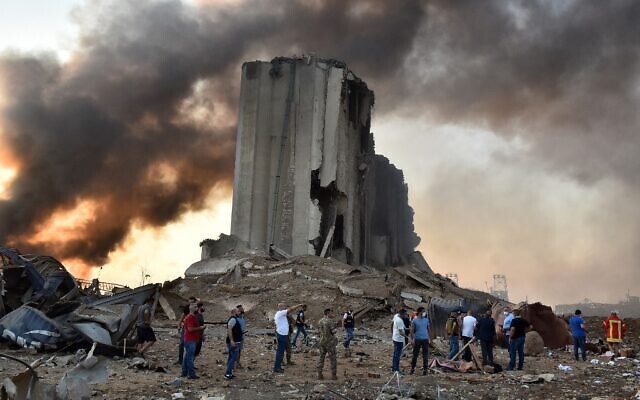
Tensions have been high on the Israeli-Lebanese border recently, after Israel said it thwarted an infiltration attempt by up to five Hezbollah gunmen — a claim denied by the Hezbollah. Israel has been bracing for an attack from Hezbollah after killing one of its men in an airstrike in Syria last month.
An Israeli government official said Israel had nothing to do with the blast Tuesday. He spoke on condition of anonymity, because he was not authorized to discuss the matter with the media. Israeli officials usually do not comment on “foreign reports.”
Elsewhere in the Middle East, Qatar said it would dispatch field hospitals and Iran said it was ready to assist in any way.
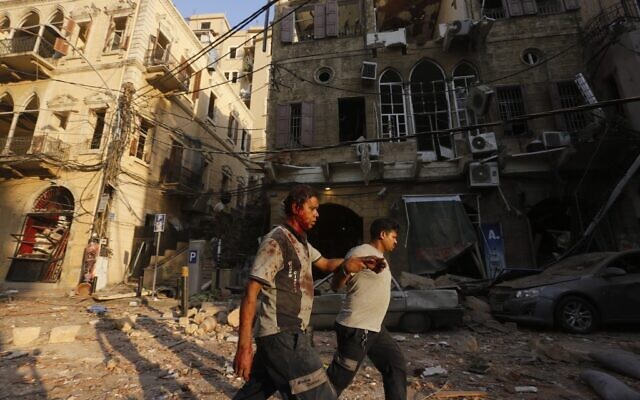
The blast left at least 50 people dead and thousands more injured, according to officials. Many more people were said to be buried under rubble.
The cause of the blast, which sparked fires, overturned cars and blew out windows and doors, was not immediately known.
An initial explosion appeared to engulf a fireworks storehouse, which then sparked a massive mushroom cloud, sending a shockwave racing across the city. Abbas Ibrahim, chief of Lebanese General Security, said it might have been caused by highly explosive material that was confiscated from a ship some time ago and stored at the port. Local television channel LBC said the material was sodium nitrate.
Though some suspicions around the blast turned to Israel, due in part to its recent clashes with Hezbollah, both sides denied any link.
The blast came at a time when Lebanon’s economy is facing collapse, hit both by a financial crisis and by coronavirus restrictions. Many have lost jobs, while the value of their savings has evaporated as the currency has plunged in against the dollar. The result has thrown many into poverty.
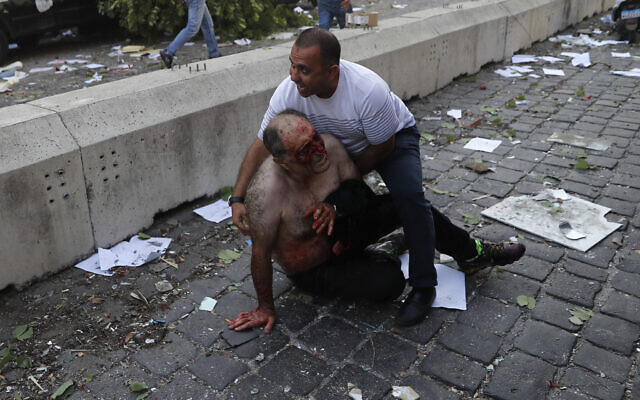
Hours after the explosion, ambulances were still carrying away the wounded and officials said Beirut’s hospitals were full. Army helicopters helped battle fires raging at the port.
Several of Beirut’s hospitals were damaged in the blast. Roum Hospital put out a call for people to bring it spare generators to keep its electricity going as it evacuated patients because of heavy damage.
Outside the St. George University Hospital in Beirut’s Achrafieh neighborhood, people with various injuries arrived in ambulances, in cars and on foot. The explosion had caused major damage inside the building and knocked out the electricity at the hospital.
Dozens of injured were being treated on the spot on the street outside, on stretchers and wheelchairs.
“This is a catastrophe we have on our hands,” said one doctor, speaking on condition of anonymity because he was not authorized to make press statements.
“We’re doing surgery in the hallways,” a Beirut hospital director told al-Mayadeen.

France was among the first countries to offer aid.
“France stands and will always stand by the side of Lebanon and the Lebanese. It is ready to provide assistance according to the needs expressed by the Lebanese authorities,” French Foreign Minister Jean-Yves Le Drian said in a tweet.
Qatar’s ruler Emir Sheikh Tamim bin Hamad Al-Thani called President Michel Aoun to offer condolences, according to the state-run Qatar News Agency.
Sheikh Tamim wished “a speedy recovery for the injured,” QNA reported, adding that he “expressed Qatar’s solidarity with brotherly Lebanon and its willingness to provide all kinds of assistance.”
Field hospitals would be dispatched, the report added.
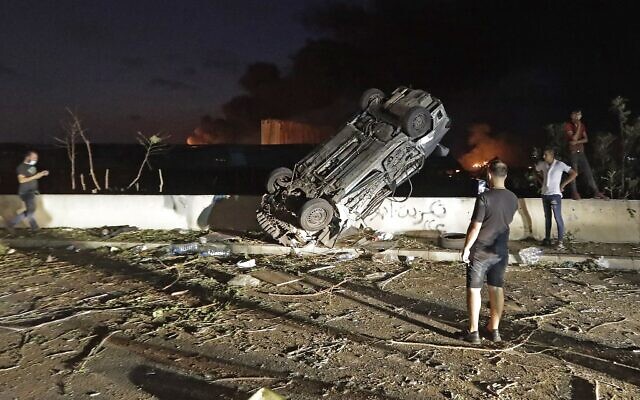
Elsewhere in the Gulf, the United Arab Emirates’ Minister of State for Foreign Affairs Anwar Gargash tweeted that “our hearts are with Beirut and its people.”
Iran expressed Tehran’s support for the “resilient” people of Lebanon. “Our thoughts and prayers are with the great and resilient people of Lebanon,” Foreign Minister Mohammad Javad Zarif tweeted. “Iran is fully prepared to render assistance in any way necessary,”
he said.